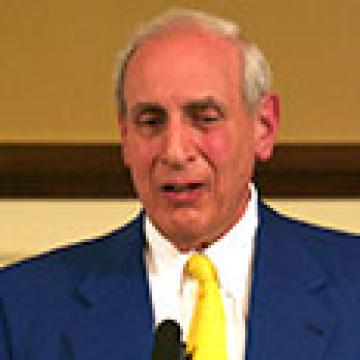John Tyler: Campaigns and Elections
The Campaign and Election of 1840:
When the Whigs held their first convention in late 1839, the attendees reflected a loosely joined confederation of slave-owners and abolitionists, nationalists and antinationalists. These individuals were united by their dislike of Andrew Jackson and his chosen successor, President Martin Van Buren. Henry Clay made a strong play for their presidential nomination and was strongly supported by Tyler, despite Clay's work against him in 1836. Clay's virulent proslavery stance, however, made support from northern Whigs all but impossible. Ballot after ballot failed to produce a nominee, and Clay's lead began to erode. Slowly, steadily, the convention turned to William Henry Harrison, and finally "Old Tippecanoe" clinched it.
Tyler quickly became the Whig's choice as Harrison's running mate. While Harrison was born in Virginia, he had spent virtually his entire adult life fighting in and governing territories in the Ohio River valley frontier. Tyler's strong support in the South offered geographical balance to the ticket. In addition, Tyler could be marketed as genteel in comparison with Harrison's rustic image—elite Old South compared to Harrison's populism. He would appease the states' rights, proslavery wing of the party and help carry the critical state of Virginia.
Tyler largely sat the campaign out. The prospect of orating to the swarms of unwashed did not appeal to him. All the populism of the Harrison campaign, all the democratic widening of the electorate that he had always opposed as "mob rule" was now, with fine irony, propelling him to national office—unwittingly, it would soon make him President.
Try as they might, the Democrats could not stop the Whigs. They planted operatives at rare Tyler campaign appearances, ready to pepper the candidate with questions they hoped would pin him down on issues; they paraded a Native American woman who claimed she had borne children by Harrison. Nothing worked. Harrison won nearly four times as many electoral college votes as Van Buren. Nineteen of America's twenty-six states went to the Whigs; Van Buren failed even to carry his home state of New York.
The Whigs, in reach of federal power for the first time, descended on the capital in great force. Greedy office-seekers besieged Harrison constantly, and many began to whisper that the sixty-eight-year-old president-elect was looking frail. On inauguration day, he delivered a meandering two-hour address, without a coat or hat, before fifty thousand attendees in freezing weather. He then made the social rounds and did his best to avoid the hundreds of office-seekers. Over the ensuing days and weeks, Harrison grew more ill. Unfortunately, the medical practices of the period—one involved heated suction cups, another live snakes—hurt more than they helped.
Largely ignored by the inaugural throng, Tyler left Washington for his Virginia home shortly after the speeches. Harrison had sought almost none of his counsel and none had been offered. One month and one day after the inaugural, on April 5, 1841, the son of Secretary of State Daniel Webster pounded on John Tyler's door at dawn after an all-night journey. Harrison was dead. John Tyler was President. He was fifty-one, the youngest man yet to become chief executive.
Tyler rushed to Washington, D.C., and found near anarchy. Whig insiders were fighting over offices and appointments. No President had ever died in office before, and no one knew what to do. Was Tyler President for the rest of Harrison's term? Or was he "acting president"? The Constitution was not clear on his status. Tyler settled the matter by taking the oath of office as President.
The Campaign and Election of 1844
By the end of his term in office, Tyler had been drummed out of the Whig Party and vilified by the Democrats. Indeed, he was on the outside looking in as far as reelection was concerned. His followers held a convention and nominated him as a third party candidate for President, but he stood no chance of victory.
The Whigs nominated Henry Clay. Many Democrats nominated James Polk, a "dark horse," or largely unknown and therefore unassailable candidate, from Tennessee. Clay's support was narrow and brittle, and no one knew what to make of the politically mute Polk. Tyler felt that his advantage lay in the powers of his office. Consequently, he used his position to try to move the Texas issue to another vote and ride the issue to victory. Unfortunately, though he won Texas annexation, it did little to improve his chances.
Then Polk delivered the deathblow to Tyler's chances. The "dark horse" Democrat came out publicly for Texas statehood, stealing Tyler's thunder on the issue. Andrew Jackson, still wielding considerable power despite being long retired at his home, the Hermitage in Tennessee, sent word to Tyler. If the President withdrew from the race, Jackson told Tyler that he would at least have the pleasure of taking Clay down with him. Tyler and Polk might split the vote and hand Clay the White House, but in a two-candidate race, Clay would have no chance. Tyler withdrew in late August and threw his support behind Polk, and Polk managed to win by a narrow margin.
